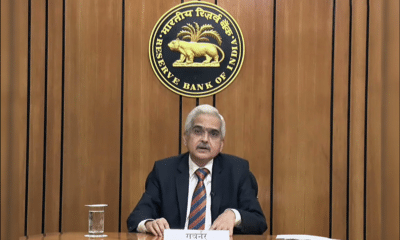Banking
Centre unlikely to take zero-coupon bond to recapitalize PSBs
Because of the concerns raised by the Reserve Bank, the government is unlikely to take zero-coupon bond route to further recapitalize public sector banks (PSBs). The government would resort back to recapitalization bonds bearing a coupon rate for capital infusion in these banks.
In an effort to save the interest burden and ease fiscal pressure, the government in 2020 decided to issue zero-coupon bonds for meeting the capital needs of the banks. According to PTI, the first test case of the new mechanism was a capital infusion of Rs 5,500 crore into Punjab and Sind Bank by issuing zero-coupon bonds of six different maturities last year. These special securities with tenure of 10 to 15 years are non-interest bearing and valued at par.
Sources said the central bank had raised concerns with regard to calculation of an effective capital infusion made in any bank through this instrument issued at par. They pointed out that since such bonds usually are non-interest bearing but issued at a deep discount to the face value, it is difficult to ascertain net present value. As such, the RBI concluded to do away with zero-coupon bond for recapitalization.
These special bonds are non-interest bearing and issued at par to a bank; it would be an investment that would not earn any return and rather depreciate with each passing year. This innovative mechanism was adopted to ease the financial burden as the government has already spent Rs 22,086.54 cr as interest payment towards the recapitalization bonds of PSBs in the last two financial years.
Moreover, during the FY2018-19, the government paid Rs 5,800.55 cr as interest on such bonds issued to PSBs for pumping in the capital so that they could meet the regulatory norms under the Base-III guidelines. In the subsequent year, as per an official document, the interest payment by the government surged three times to Rs 16,285.99 cr to PSBs.
Also Read: Global chip shortage might prompt smartphone companies to boost price
The government, under this mechanism, issues recapitalization bonds to a PSB which needs capital. The said bank subscribes to the paper against which the government receives the money. The money received goes as equity capital of the bank. So the government doesn’t have to pay anything from its pocket. However, the money invested by banks in recapitalization bonds is classified as an investment which earns them an interest.












































Pingback: Godzilla vs. Kong set to make a “roar” at the box office | The Plunge Daily